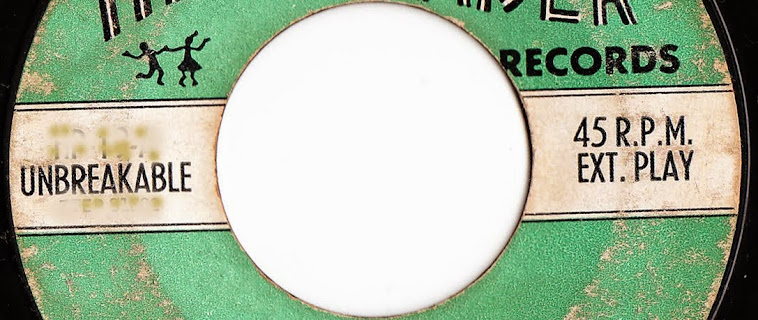
Sunday blues? Dottie Clark gets you, baby. Her album for the Mainstream label, I'm Lost [56006, 1962], is as crackin' a debut as you're likely to find. Mainstream did a lot with vocalists early on before moving full force into heavy psych, breaking both Big Brother & the Holding Company and the Amboy Dukes. But despite a few flops here n' there, it's a label that often signals a worthy purchase, and many of their one-off artist releases are pretty sweet.
Clark was from Washington, D.C., and, with the exception of a stray 45, never made another record. Not much is known about her save for the sparse liner notes that give the basic pitches for why she's a rising star: "excellent voice, beautiful phrasing, and a tremendous amount of experience." Obviously written by someone at the label, since they're anonymous. Guess Mainstream couldn't spring for Nat Hentoff or Leonard Feather. Thing is, the liner notes aren't far off - sure, she's no Ella or Sarah or Dinah or whoever, but Dottie Clark's voice sticks with you. It contributes just as much to the feel of each song as the arrangements themselves. She's haunting, hurt, bluesy; brassy when she needs and vulnerable when she wants.
This has much to do with the arranging. Joe Cain, who's name isn't as well known as some others of his era, was an Italian-American trumpeter (b. Joseph Caiani) who became enamored of, and then a part of, the Latin jazz explosion of the 1950s. He worked with some of the early greats (Tito Puente, Vincentico Valdes, Charlie & Eddie Palmieri) as an arranger, and then moved to producing records for the fabled Tico label until it folded in 1975. Along the way, Cain asked Hugo Montenegro to be his mentor. Montenegro declined, but gave this advice: write for the singer-as-star, not the musicians he was conducting.
This dictum plays out perfectly on I'm Lost, on which Cain snagged several jazz heavyweights (Geurge Duvivier, Herbie Lovelle) and a handful of sessionmen who bridged the burgeoning jazz-to-rock gaps of the time (Vinny Bell, on guitar, invented the electric sitar which he played on the Lemon Pipers' "Green Tambourine", and Lovelle had drummed for Bob Dylan on some Freewheelin' outtakes). The resulting sound is large, yet intimate, the six-piece band never overwhelming Clark, instead allowing her to take command of the song, whether it's a bubbling pop chart or a simmering torch song.
Most of the tunes are unfamiliar to me, though a little searching reveals that at least a few tunes are older - if not super famous - standards. Unfortunately, no writing credit is given, just publishing info on the vinyl's label. And, semantics aside, I'm Lost has the kind of mystery behind it we like here at A List: enough to get a foothold on, more than enough to get an earful of.

